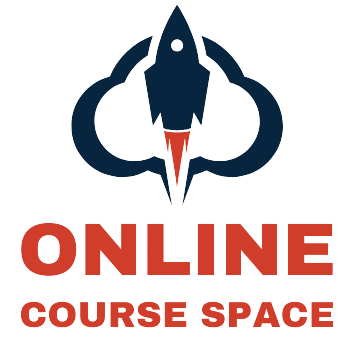Python is a high-level, interpreted programming language that is widely used for various purposes such as web development, data analysis, machine learning, and automation. It was first released in 1991 by Guido van Rossum and has since become one of the most popular programming languages in the world.
Python is known for its simplicity, readability, and ease of use. It uses a clean and concise syntax that makes it easy to write and understand code. Python is also an object-oriented language, meaning that it allows for the creation of classes and objects, which can be used to organize code and make it more modular.
One of the main advantages of Python is its extensive libraries and frameworks that allow for easy and efficient development. Some popular libraries and frameworks include NumPy, Pandas, Scikit-learn, TensorFlow, and Django.
Python is also cross-platform, meaning that it can run on different operating systems such as Windows, Linux, and macOS.
Overall, Python is a versatile language that can be used for a wide range of applications. Its popularity and ease of use make it an ideal choice for beginners and experienced programmers alike.
1. Python – Basic and Advance (Expertifie)

The course is recorded with the latest Python version: Python 3. It is a practical focused course, thus making it compressive and easy to follow for beginners stepping into the world of programming.
This course will guide you through concepts such as variables, data structures, conditionals, object-oriented programming (OOP), and the Python third-party package ecosystem. You will also get to grips with unit testing your code. As you progress, you’ll get hands-on experience by working through several mini-projects such as creating an exciting guessing game. Finally, you’ll learn how to develop an image recognition application that can detect objects in photographs, such as people, cars, bikes, and more.
This course is for complete beginners who want to learn Python basics in a straightforward way. Even if you are a programming beginner who started with another language and want to jump to Python, you can opt for this course. This course is also for Python developers who want a quick refresher course, or anyone interested in web development, robotics, artificial intelligence, video games development, and data science.
With the right course, you will discover the right way to code in Python. This course provides the tips and techniques you need to produce cleaner, error-free, and eloquent Python projects.
Key Highlights
- You will understand the importance of formatting and documenting your code for maximum readability, utilizing built-in data structures and Python dictionary for improved maintainability, and working with modules and meta-classes to effectively organize your code.
- You will dive deep into the new features of the Python language and learn how to effectively utilize them.
- you will decode key concepts such as asynchronous programming, Python data types, type hinting, and path handling.
- Learn tips to debug and conduct unit and integration tests in your Python code to ensure your code is ready for production.
- You will equip with essential tools for version management, managing live code, and intelligent code completion.
- You will become proficient in writing clean Python code and successfully apply these principles to your own Python projects
Duration : 24+ hours of video lectures, ppt and code files
Rating : 4.9
2. Complete Python Bootcamp: Go from zero to hero in Python 3 (Udemy)

The Complete Python Bootcamp is an online course offered by Udemy that aims to teach students Python programming from beginner to advanced level. The course is designed for beginners with no prior programming experience and is ideal for those who want to learn Python for data analysis, web development, machine learning, or automation.
The course is divided into various sections, starting with the basics of Python syntax and data types. It then covers more advanced topics such as control flow, functions, object-oriented programming, file handling, and error handling. The course also includes sections on popular libraries such as NumPy, Pandas, Matplotlib, and Flask.
Throughout the course, students work on hands-on projects that apply the concepts learned in each section to real-world problems. These projects include creating a web scraping tool, building a machine learning model, and developing a Flask web application.
The course is taught by Jose Portilla, an experienced Python instructor, and includes over 22 hours of video lectures, quizzes, and coding exercises. The course is self-paced, and students have lifetime access to the materials, allowing them to revisit the content as often as they need.
Upon completion of the course, students will have a strong foundation in Python programming and will be able to use the language for a variety of applications. They will also receive a certificate of completion, which they can add to their resume or LinkedIn profile to showcase their skills in Python programming.
- Learn advanced Python features, like the collections module and how to work with timestamps
- Understand complex topics, like decorators
- Get an understanding of how to create GUIs in the Jupyter Notebook system
- Learn to use Object Oriented Programming with classes
- Understand how to use both the Jupyter Notebook and create .py files
- Includes 3 major projects to create a Python project portfolio
- Create games with Python, like Tic Tac Toe and Blackjack
Duration : 24 hours on-demand video, 19 articles
Rating : 4.5
Sign up Here
3. Applied Data Science with Python Specialization from University of Michigan (Coursera)

University of Michigan on Coursera. The specialization aims to teach students how to apply Python programming skills to real-world data science problems.
The specialization consists of five courses:
- Introduction to Data Science in Python: This course provides an introduction to the tools and libraries used in data science, including NumPy, Pandas, and Matplotlib.
- Applied Plotting, Charting & Data Representation in Python: This course covers advanced data visualization techniques using libraries such as Seaborn, Plotly, and Bokeh.
- Applied Machine Learning in Python: This course covers machine learning algorithms and their applications in Python, including supervised and unsupervised learning, decision trees, and clustering.
- Applied Text Mining in Python: This course covers techniques for analyzing and processing text data, including natural language processing, sentiment analysis, and topic modeling.
- Applied Social Network Analysis in Python: This course covers methods for analyzing and visualizing social network data, including graph theory, network models, and centrality measures.
Throughout the specialization, students work on hands-on projects that apply the concepts learned in each course to real-world problems. These projects include analyzing financial data, predicting customer churn, and analyzing social networks.
The specialization is taught by instructors from the University of Michigan and includes video lectures, quizzes, coding exercises, and peer-reviewed assignments. Upon completion of the specialization, students will have a strong foundation in data science with Python and will be able to use these skills to solve real-world problems in various industries. They will also receive a certificate of completion, which they can add to their resume or LinkedIn profile to showcase their skills in data science with Python.
Key Highlights
- Gain hands-on experience with Python data science libraries for data analysis
- Analyze the connectivity of a social network
- Learn information visualization basics with a focus on reporting, charting using the matplotlib library
- Discern whether a data visualization is good or bad
- Conduct an inferential statistical analysis
- Enhance a data analysis with applied machine learning
- Identify the difference between a supervised (classification) and unsupervised (clustering) technique and identify which technique should be applied for a particular dataset
- Build network models to identify the relationships within social networks
Duration : Approx. 5 months, 7 hours per week
Rating : 4.6
Sign up Here
4. Python for Data Science and Machine Learning Bootcamp (Udemy)

The Python for Data Science and Machine Learning Bootcamp is an online course offered by Udemy that aims to teach students how to use Python for data science and machine learning. The course is designed for beginners with no prior experience in Python or data science.
The course covers various topics such as Python basics, data analysis with NumPy and Pandas, data visualization with Matplotlib and Seaborn, machine learning with Scikit-Learn, and deep learning with TensorFlow. Throughout the course, students work on hands-on projects that apply the concepts learned in each section to real-world problems. These projects include predicting house prices, classifying handwritten digits, and creating a recommendation system.
The course is taught by Jose Portilla, an experienced instructor who has taught over 200,000 students on Udemy. The course includes over 25 hours of video lectures, quizzes, and coding exercises. The course is self-paced, and students have lifetime access to the materials, allowing them to revisit the content as often as they need.
Upon completion of the course, students will have a strong foundation in Python programming for data science and machine learning. They will also receive a certificate of completion, which they can add to their resume or LinkedIn profile to showcase their skills in Python programming for data science and machine learning.
Key Highlights
- Learn to use Python libraries – Pandas for Data Analysis, NumPy for Numerical Data, Matplotlib for Python Plotting, Seaborn for statistical plots, Plotly for interactive dynamic visualizations, SciKit-Learn for Machine Learning Tasks
- Use Spark for Big Data Analysis
- Implement Machine Learning Algorithms
- Understand Linear Regression, Logistic Regression, K-Means Clustering
- Learn Random Forest and Decision Trees
- Learn Natural Language Processing and Spam Filters
- Learn Neural Networks and Support Vector Machines
- Access to great community of learners who help each other
Duration : 22.5 hours on-demand video
Rating : 4.6
Sign up Here
5. Learn Python Nanodegree Programs (Udacity)

Udacity offers two Learn Python Nanodegree programs, designed for students with different levels of experience in Python.
- Learn Python: This Nanodegree program is designed for beginners who have no prior experience in Python. The program covers Python fundamentals, object-oriented programming, web development, and data analysis. Students work on projects such as building a weather forecasting web app, analyzing a dataset of stock prices, and building a recommendation engine.
- Learn Python for Data Science: This Nanodegree program is designed for students who have some experience in Python and want to focus on data science applications. The program covers data analysis with Pandas and NumPy, data visualization with Matplotlib and Seaborn, machine learning with Scikit-Learn, and deep learning with TensorFlow. Students work on projects such as analyzing a dataset of used cars for sale, building a machine learning model to predict customer churn, and building a deep learning model to recognize handwritten digits.
Both Nanodegree programs include video lectures, quizzes, coding exercises, and hands-on projects. Students receive feedback from expert reviewers on their projects and have access to a community of peers and mentors. The programs are self-paced, and students have access to the materials for a period of time ranging from three to six months, depending on the program.
Upon completion of the Nanodegree program, students receive a certificate of completion, which they can add to their resume or LinkedIn profile to showcase their skills in Python programming and data science. They also have access to Udacity’s career services, which include job placement assistance and resume and LinkedIn profile reviews.
Key Highlights
- Gain practitioner-level skills with Python
- Programs designed and taught entirely by industry insiders who work in the field
- Learn by building real world projects built in partnership with top tier companies
- Build a portfolio of projects to demonstrate your Python skills to potential employers
- Flexible learning programs that allow you to schedule learning at your own pace
Duration : 2-3 months, 10 hours a week
Rating : 4.6
Sign up Here
6. Python Programming Masterclass (Udemy)

The Python Programming Masterclass on Udemy is a comprehensive course that covers the fundamentals of the Python programming language. The course is designed for beginners who have little or no experience in programming, as well as experienced programmers who want to learn Python from scratch.
The course is taught by Tim Buchalka, a software developer and instructor with over 30 years of experience. The course is structured into several modules that cover different aspects of Python programming, including variables, data types, operators, control flow, functions, modules, and object-oriented programming.
Throughout the course, students will learn how to write Python programs from scratch and will be guided through a variety of programming exercises and quizzes to reinforce their learning. The course also includes several real-world projects that students can work on to apply their newfound knowledge.
One of the main advantages of the Python Programming Masterclass is that it is self-paced, allowing students to learn at their own pace and according to their own schedule. The course also provides lifetime access to the course materials, which means that students can revisit the course at any time to refresh their knowledge.
Overall, the Python Programming Masterclass is a comprehensive and well-structured course that is suitable for anyone who wants to learn Python programming, regardless of their prior experience.
Key Highlights
- Learn Python from experienced professional software developers
- Understand both Python 2 and Python 3
- Understand how to create your own Python applications
- Add the Python Object-Oriented Programming (OOP) skills to your resume
- Up-to-date course content and full support from instructors
Duration : 42 hours on-demand video, 15 articles
Rating : 4.5
Sign up Here
7. Professional Certificate in Introduction to Computing in Python by Georgia Tech (edX)

The Professional Certificate in Introduction to Computing in Python by Georgia Tech on edX is an online program that teaches the basics of computer programming using the Python programming language. The program is designed for individuals with little or no programming experience who want to learn how to code in Python.
The program is made up of four courses that cover the fundamental concepts of programming and the basics of the Python language. The courses are taught by instructors from the Georgia Tech College of Computing and are designed to be engaging and interactive.
In the first course, students learn the basics of programming using Python, including variables, expressions, and control structures. In the second course, students learn how to work with functions, modules, and data structures in Python. In the third course, students learn about object-oriented programming in Python. And in the fourth course, students learn how to use Python to manipulate data and work with databases.
Throughout the program, students will have access to interactive exercises and quizzes to help reinforce their learning. They will also have access to a community of other learners and instructors who can provide feedback and support.
Upon completion of the program, students will receive a Professional Certificate from Georgia Tech that they can use to demonstrate their skills and knowledge in Python programming.
Overall, the Professional Certificate in Introduction to Computing in Python by Georgia Tech on edX is a comprehensive and well-structured program that provides a solid foundation in Python programming for individuals with little or no programming experience.
Key Highlights
- Understand the fundamental design cycle of computer science and computer programming: writing code, executing it, interpreting the results, and revising the code based on the outcomes
- Learn procedural programming, control structures and data structures
- Learn about recursion, search and sort algorithms, and object-oriented programming in Python
- Learn more complex ways of handling data in Python, including files, lists, and dictionaries for building complex programs
Duration : 4 courses, 5 weeks per course, 9 to 10 hours per week
Rating : 4.6
Sign up Here
8. Python for Data Science by IBM (Coursera)

Python for Data Science by IBM on Coursera is a series of courses designed to teach individuals how to use Python programming for data science applications. The program is designed for individuals with some programming experience who want to learn how to apply Python to real-world data science problems.
The program is made up of five courses that cover the basics of programming in Python, data analysis with Python, data visualization with Python, machine learning with Python, and applied data science with Python. The courses are taught by instructors from IBM and are designed to be interactive and engaging.
In the first course, students learn the basics of Python programming, including variables, data types, and control structures. In the second course, students learn how to use Python for data analysis, including data manipulation, cleaning, and transformation. In the third course, students learn how to use Python for data visualization, including creating charts and graphs to help visualize data.
In the fourth course, students learn the basics of machine learning and how to use Python to build and train machine learning models. In the fifth course, students learn how to apply the skills they’ve learned to real-world data science problems, including data analysis and visualization, machine learning, and data ethics.
Throughout the program, students will have access to interactive exercises and quizzes to help reinforce their learning. They will also have access to a community of other learners and instructors who can provide feedback and support.
Upon completion of the program, students will receive a certificate from IBM that they can use to demonstrate their skills and knowledge in Python programming for data science applications.
Overall, Python for Data Science by IBM on Coursera is a comprehensive and well-designed program that provides a solid foundation in Python programming for data science applications.
Key Highlights
- Learn to work with data in Python
- Learn Python libraries Pandas, Numpy and more
- Learn the control structures for developing dynamic programs like conditionals, loops, functions and error handling
- Explore the Python data structures like strings, lists, dictionaries, and file manipulation
- Project to analyse US Economic data and build a dashboard
Duration : Approx. 20 hours
Rating : 4.6
Sign up Here
9. The Python Bible™ | Everything You Need to Program in Python (Udemy)

The Python Bible™ is a comprehensive course on Udemy that is designed to teach individuals everything they need to know to become proficient in Python programming. The course is suitable for beginners with no prior programming experience as well as experienced programmers who want to learn Python.
The course is taught by Ziyad Yehia, a software engineer with over 15 years of experience in programming. The course is structured into several modules that cover different aspects of Python programming, including variables, data types, control structures, functions, modules, and object-oriented programming.
Throughout the course, students will learn how to write Python programs from scratch and will be guided through a variety of programming exercises and quizzes to reinforce their learning. The course also includes several real-world projects that students can work on to apply their newfound knowledge.
One of the main advantages of The Python Bible™ is that it is self-paced, allowing students to learn at their own pace and according to their own schedule. The course also provides lifetime access to the course materials, which means that students can revisit the course at any time to refresh their knowledge.
Overall, The Python Bible™ is a comprehensive and well-structured course that provides a solid foundation in Python programming for anyone who wants to learn how to program in Python.
- Learn Python 3 and build 11 Python projects
- Use Variables to Track Data in Python Programs
- Use Numbers to Create “Behind-the-Scenes” Functionality
- Use Strings to Create Customized, Engaged User Experiences
- Create Programs that can think using logic and data structures
- Use Loops to Improve Efficiency, Save Time, Maximize Productivity
- Automate Coding Tasks By Building Custom Python Functions
Duration : 9 hours on-demand video
Rating : 4.6
Sign up Here
10. Learning Python (LinkedIn Learning – Lynda)

Learning Python is a course on LinkedIn Learning (formerly known as Lynda.com) that is designed to teach individuals how to program in Python. The course is suitable for beginners with no prior programming experience as well as experienced programmers who want to learn Python.
The course is taught by Joe Marini, a software developer and trainer with over 20 years of experience in the industry. The course is structured into several modules that cover different aspects of Python programming, including variables, data types, control structures, functions, modules, and object-oriented programming.
Throughout the course, students will learn how to write Python programs from scratch and will be guided through a variety of programming exercises and quizzes to reinforce their learning. The course also includes several real-world projects that students can work on to apply their newfound knowledge.
One of the main advantages of Learning Python on LinkedIn Learning is that it provides a flexible learning experience, allowing students to learn at their own pace and according to their own schedule. The course also provides lifetime access to the course materials, which means that students can revisit the course at any time to refresh their knowledge.
Overall, Learning Python on LinkedIn Learning is a comprehensive and well-structured course that provides a solid foundation in Python programming for anyone who wants to learn how to program in Python.
Key Highlights
- Understand the foundations of Python programming
- Learn to work with dates and times, read and write files, and retrieve and parse HTML, JSON, and XML data from the web
- View Offline option allows learners to watch course videos and content on their mobile device without internet
- Regular assessments and practical examples
Duration : 2 hours 11 minutes
Rating : 4.6
Sign up Here



![Top 10 Artificial Intelligence Courses, Certifications & Classes Online [2023]](https://onlinecoursespace.com/wp-content/uploads/2023/03/onlinecoursespace-5-440x264.png)

